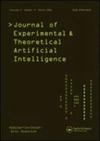基于计划成本预测的域独立启发式状态空间规划改进
IF 1.7
4区 计算机科学
Q3 COMPUTER SCIENCE, ARTIFICIAL INTELLIGENCE
Journal of Experimental & Theoretical Artificial Intelligence
Pub Date : 2021-10-31
DOI:10.1080/0952813X.2021.1970239
引用次数: 0
摘要
自动化规划是人工智能(AI)面临的一个突出挑战,已经被广泛研究了几十年,它导致了强大的领域独立规划系统的发展。领域无关规划系统的性能受到搜索空间结构的强烈影响,而搜索空间的结构依赖于应用领域及其编码。本文提出并研究了一种将机器学习与启发式搜索相结合的方法来改进领域独立规划。在学习方面,我们使用学习来预测给定实例的良好解决方案的计划成本。在规划方面,我们提出了一个边界敏感的启发式函数,该函数利用状态空间规划器中的这种预测。我们的函数将输入预测(归纳推导)与搜索期间收集的一些信息片段(演绎推导)结合起来。由于预测有时可能非常不准确,该功能还提供了识别所提供信息实际上误导搜索的方法。我们的实验分析证明了该方法在标准启发式最佳优先搜索模式中的有效性。本文章由计算机程序翻译,如有差异,请以英文原文为准。
Improving Domain-Independent Heuristic State-Space Planning via plan cost predictions
ABSTRACT Automated planning is a prominent Artificial Intelligence (AI) challenge that has been extensively studied for decades, which has led to the development of powerful domain-independent planning systems. The performance of domain-independent planning systems are strongly affected by the structure of the search space, that is dependent on the application domain and on its encoding. This paper proposes and investigates a novel way of combining machine learning and heuristic search to improve domain-independent planning. On the learning side, we use learning to predict the plan cost of a good solution for a given instance. On the planning side, we propose a bound-sensitive heuristic function that exploits such a prediction in a state-space planner. Our function combines the input prediction (derived inductively) with some pieces of information gathered during search (derived deductively). As the prediction can sometimes be grossly inaccurate, the function also provides means to recognise when the provided information is actually misguiding the search. Our experimental analysis demonstrates the usefulness of the proposed approach in a standard heuristic best-first search schema.
求助全文
通过发布文献求助,成功后即可免费获取论文全文。
去求助
来源期刊
CiteScore
6.10
自引率
4.50%
发文量
89
审稿时长
>12 weeks
期刊介绍:
Journal of Experimental & Theoretical Artificial Intelligence (JETAI) is a world leading journal dedicated to publishing high quality, rigorously reviewed, original papers in artificial intelligence (AI) research.
The journal features work in all subfields of AI research and accepts both theoretical and applied research. Topics covered include, but are not limited to, the following:
• cognitive science
• games
• learning
• knowledge representation
• memory and neural system modelling
• perception
• problem-solving

 求助内容:
求助内容: 应助结果提醒方式:
应助结果提醒方式:


